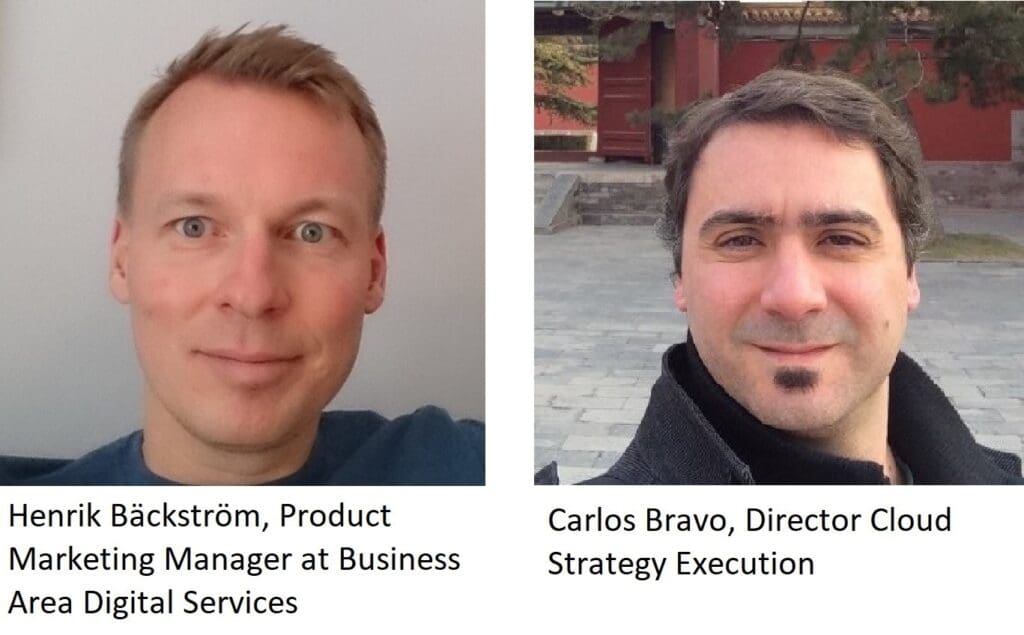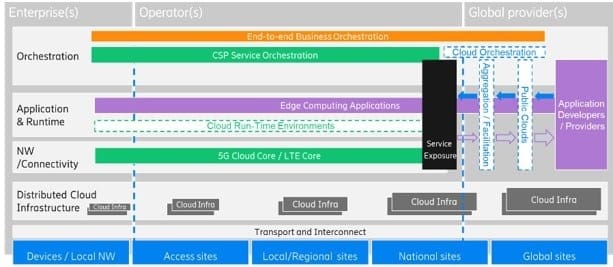Twitter Feed
Packing My Bags For Prague and Dimension Data #Perspectives2015
Prague is a beautiful city! My last time was in June 2010 when Jeremy Geelan invited me to speak at CloudExpo Europe (see my blog post and video from that…
SAP/HANA Does Big Data for National Security
Carmen Krueger, SAP NS2 SVP & GM While SAP is globally renowned as a provider of enterprise management software, the name is hardly ever associated with the spooky world of…
Be future ready: Selling to millennials and a marketplace of one
There is almost a deafening discussion going on about the self-centeredness of today’s young adults. Weather you call them Generation Y, millennials or twenty-somethings, the general refrain seems to be…
Surviving an Environment of IT Change
“The Federal government today is in the midst of a revolution. The revolution is challenging the norms of government by introducing new ways of serving the people. New models…
OmniTI and GovCloud Join Forces to Provide Cloud-based Services
FULTON, Md.–(BUSINESS WIRE)–OmniTI, a leading provider of web infrastructures and applications for companies that require scalable, high-performance, mission critical solutions, today announced that it has partnered with GovCloud Network, LLC…
Cloud microservices make their play
by Kevin L. Jackson Cloud computing seems destined to be the way enterprises will use information technology. The drastic cost reductions and impressive operational improvements make the transition an unstoppable trend.…
Tweeps Are People Too!!
I woke up this morning to the devastating news about the earthquake in Nepal. Sitting here in California that destruction is literally on the other side of the world but…
The CISO role in cybersecurity: Solo or team sport?
The average length of time in the commercial sector between a network security breach and when the detection of that breach is more than 240 days, according to Gregory Touhill, deputy…
Setting standards for IoT can capitalize on future growth
by Melvin Greer Managing Director Greer Institute for Leadership and Innovation The adoption of Internet of Things (IoT) appears to be unquestioned. Advances in wearables and sensors are strategic to…
Women in tech: Meet the trailblazers of STEM equality
By Sandra K. Johnson CEO, SKJ Visioneering, LLC Science, technology, engineering and mathematics (STEM) professionals are drivers of innovation,creativity and invention. STEM disciplines are significant drivers of economies worldwide,…
Communications Service Providers (CSPs) are facing significant business model challenges. Referred to generally as edge computing, the possibilities introduced by the blending of 5G networks and distributed cloud computing technologies are redefining how CSPs operate, partner, and drive revenue. A new Ericsson Digital whitepaper entitled, “Edge computing and deployment strategies for communication service providers,†addresses these challenges by providing much-needed insight and actionable strategic recommendations.
Written by Ericsson Director Cloud Strategy Execution Carlos Bravo and Solution Marketing Manager Henrik Bäckström, this new work presents a practical roadmap for how the industry should address the expected US$700 billion in 5G-enabled, business-to-business value. It directly answers the question of how operators can maintain relevance in the face of the current massive industry changes. The most enlightening aspect of the paper was the architectural approach to the design and deployment of advanced edge computing solutions. The four critical components of this approach are:
- Dynamic orchestration and management;
- Application runtime execution environment;
- Connectivity; and
- Distributed cloud infrastructure.

Dynamic orchestration and management emphasize a centralized function that maintains awareness of the network topology and resource availability. This capability maintains consistency between user plane gateway functionality and edge applications.  Consistency is critical to the management of non-telco workloads and VNFs. The application runtime execution environment (RTE) is responsible for hosting all enterprise customer applications in a consistent and well-documented edge computing service environment. Documentation is essential to the development and nurturing of the CSP’s application developer community. Connectivity delivers foundational bandwidth, throughput, mobility, and latency requirements. For edge computing, the application developer may specify these requirements. New traffic routing services that coordinate application server requirements and network functionality are also required. In combination, these capabilities enable the Distributed Cloud Infrastructure, which is composed of global, national, regional, and local cloud data centers. The integration of these data centers with the network is also critical.

Success with this model requires an overall strategy that differentiates on services delivered. This strategy differs from the more common “services description†approach by its ability to solve industry-specific challenges through the provisioning of easy-to-consume application programming interfaces, or APIs. This “broad tent†approach also requires open collaboration with system integrators, hyperscale cloud service providers, and operations technology vendors. System Integrators (SI) are particularly suited to the task of addressing enterprise pain points related to edge computing solution implementation and the integration of vertical industry offerings. Hyperscale Cloud Providers (HCP) deliver cloud infrastructure and platforms. They also bring with them the application developer ecosystems. Operations Technology (OT) vendors have the Internet of Things (IoT) platforms and applications that deliver the real value at the network edge. Since differentiated services must also be easily accessible to application developers, operators should offer APIs that follow industry de-facto standards or adopt APIs that present a common list of attributes.

This business model approach redefines the telecommunications value chain. It features operators as the provider of new enterprise-focused offerings. The models also enable many and varied use cases across multiple industry verticals. Operators can also differentiate locally while simultaneously leveraging a global edge computing ecosystem.
Following this recommended path leads typically to service provider focus on one, or a combination, of the following high-level strategies:
- Full Edge Provider – CSP advances a strong go-to-market (GTM) relationship with the enterprise or the application developer/provider, committing to vertical-specific SLAs
- Partner Edge Provider – CSP resells HCP and OT vendor industry vertical solutions delivered over the provider’s connectivity services. The focus is on use cases that depend on robust connectivity.
- Aggregator Edge Provider – CSP partners with a content aggregator through a revenue share aaS model. The aggregator commits to SLAs while the CSP provides edge hardware.
- Limited Edge Provider – CSP focusses on connectivity that supports vertical industry solutions offered by partner HCP, SI and OT vendors
Edge Computing is drastically changing the service provider role. Success will depend on pursuing a collaborative partner strategy that highlights your telco company’s strengths. All of the recommended strategies, however, demand an understanding and focus on enterprise vertical challenges and solutions.
Ericsson Digital Services offer solutions to modernize, digitalize, and shape new business models for Telco operators globally. Our advanced offerings are designed to help you secure, serve, and grow your business and customer base through innovative customer engagement platforms, automated operations, and programmable networks. If you know what your customers are doing, you will know what to do for your customers. Let us help you leverage edge computing to transform your business so you can evolve, scale and thrive in the digital era. Please visit https://www.ericsson.com/en/digital-services/trending/edge-computing.
Disclaimer: This article was sponsored by Ericsson as part of the Ericsson Ambassador Program.
Cloud Computing
- CPUcoin Expands CPU/GPU Power Sharing with Cudo Ventures Enterprise Network Partnership
- CPUcoin Expands CPU/GPU Power Sharing with Cudo Ventures Enterprise Network Partnership
- Route1 Announces Q2 2019 Financial Results
- CPUcoin Expands CPU/GPU Power Sharing with Cudo Ventures Enterprise Network Partnership
- ChannelAdvisor to Present at the D.A. Davidson 18th Annual Technology Conference
Cybersecurity
- Route1 Announces Q2 2019 Financial Results
- FIRST US BANCSHARES, INC. DECLARES CASH DIVIDEND
- Business Continuity Management Planning Solution Market is Expected to Grow ~ US$ 1.6 Bn by the end of 2029 - PMR
- Atos delivers Quantum-Learning-as-a-Service to Xofia to enable artificial intelligence solutions
- New Ares IoT Botnet discovered on Android OS based Set-Top Boxes
